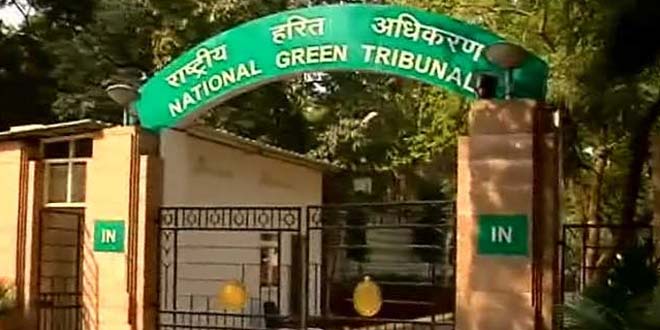Highlights
- NGT said that the lake is now turned into a dumping ground
- NGT had earlier directed the Delhi government to revive water bodies
- NGT recently banned open defecation, dumping on Yamuna floodplains
New Delhi: The National Green Tribunal (NGT) has slammed the Archaeological Survey of India (ASI) over the poor condition of the iconic Purana Qila lake in Delhi and summoned its senior official to explain why it has not been cleaned despite its direction. A bench headed by NGT Chairperson Justice Swatanter Kumar noted that the lake, which was earlier a place of tourist attraction, was covered with moss and become a dumping ground. The green panel took exception to non-compliance of its May 19 order to expeditiously restore all water bodies in the city.
It asked the ASI official to appear before it and explain why silt, sand and other debris have not been removed from the lake despite its specific direction.
“This lake was earlier meant for tourism purposes. Half of the lake area is sunk in the mosses. The lake is totally unclean, unhygienic and has become a dumping ground.
We direct the senior officer of the ASI to be present before the tribunal on September 5, 2017 and explain why the directions of the tribunal have not been carried out, the bench said.
The tribunal had earlier directed the city government to rejuvenate water bodies and asked it to maintain and clean them so that they become a source of natural beauty for the residents of the nearby area.
Also Read: National Green Tribunal Directs Delhi Government To Rejuvenate State Water Bodies
The green panel had also approved a proposal put forward by the Delhi Jal Board to revive the Rajokri water body in south-west Delhi and develop it in an aesthetic manner.
However, it had made it clear that there should be no use of “concrete, cement or brick” and the works should not change the natural geomorphology of the area.
We make it clear that needs of the water body will require protection of its catchment area and prevent siltation due to erosion and dumping of waste which alone will ensure a healthy water body rich in aquatic life and biodiversity, it said.
The NGT had said that similar approach should be adopted by all public authorities including the Delhi Development Authority and municipal corporations to restore the water bodies existing within their jurisdictions in various parts of the city and ensure that they are not used for open defecation.
The tribunal had recently banned open defecation and dumping of waste on the floodplains of Yamuna and announced a fine of Rs 5,000 for those who violated the order.
Also Read: India@70: Shortlisted To Be A Swachh Iconic Place, Here’s How Taj Mahal Fares So Far






























